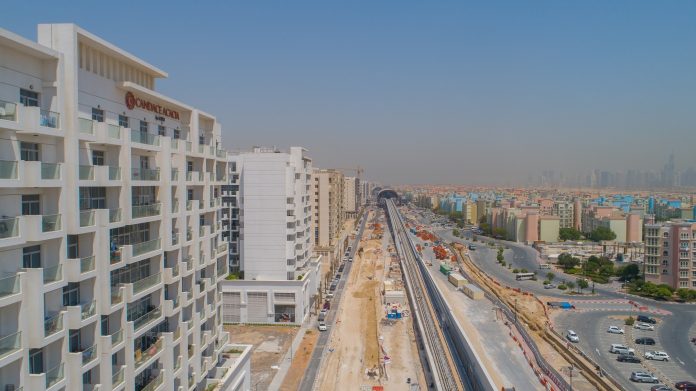
The long-anticipated Expo 2020 will run from October 20, 2020 to April 10, 2021. Located close to Dubai World Central airport in Dubai South, the site of the event is expected to cover a total of 438 ha. Expo 2020 will be the first of its kind in the MENA region, and under the theme of “Connecting Minds, Creating the Future”, it aims to act as a convening point for innovative technologies and business leaders across the world. The event is forecast to attract 25m visitors, 70% of whom will be foreigners.
In a report published in April 2019, global consultancy EY predicted that Expo 2020 will support 905,200 full-time-equivalent job years between 2013 and 2031. Moreover, given the Dubai government’s decision to transform the site of Expo 2020 into District 2020, a sustainable, mixed-use urban development that plans to transform the site into a thriving business and residential community, EY expects that the event’s economic impact will continue for a decade after it comes to a close in 2021, boosting the economy by as much as Dh122.6bn ($33.4bn). “Although Expo 2020 lasts less than a year, its positive economic impact will continue far beyond the event,” Jamie Torrens, director of economic advisory and transaction advisory services at EY, told international media in April 2019.
Impact on Infrastructure
Expo 2020 has provided impetus to the construction sector, driving developments such as roads, bridges and the extension of the Dubai Metro Red Line, Route 2020. Construction projects related to Expo 2020 are worth $238bn and scheduled for completion by end-2019.
The site of the event will be centred around Al Wasl Plaza, a large domed trellis that will act as a massive 360-degree projection screen. Connected to the plaza are three districts – Opportunity, Mobility and Sustainability – all of which are completed. These districts represent the largest built-up area of Expo 2020’s site, with a total of 86 buildings including house pavilions, food and beverage outlets, retail stores and performance spaces. Each of the three districts will be centred around their own unique pavilions, which will contain facades that resemble traditional wind towers from ancient Dubai. The districts will also incorporate sustainable technological features such as solar cells, moisture-capturing mechanisms and smart shading.
Investor Interest
EY forecast that $6.2bn will be added to Dubai’s economy over the six-month period, mostly in the form of visitor expenditure. The hospitality industry alone is anticipated to receive 39% of this predicted revenue. In addition, Expo 2020 is set to attract international investors among the 25m people expected to attend the event.
“The hotel industry will receive a huge boost from Expo 2020,” Craig Plumb, head of research for the MENA region at JLL, an international real estate investment management company, told OBG. “The residential market might also experience a boost if a significant number of the international visitors coming to Dubai for the Expo 2020 event can be persuaded to invest in property. This would help reduce the current infantry of unsold stock and have a positive impact on the market.”
Indications suggest that attempts to incentivise potential real estate investment have begun to bear fruit. Off-plan developments near the Expo 2020 site are attracting both buyers and investors, particularly the units in Dubai South – where rental yields in properties reached 11% in early 2019 – as well as Dubai Meydan City. Dubai South and Dubai Meydan City’s units, including those in Town Square and Mudon are neighbourhoods that are well integrated, and tellingly offer a high rate of return on investment. Over the next couple of years, this could see further improvements with the completion of more handovers and the choice of a broader portfolio of properties becoming readily available for tenants.



































